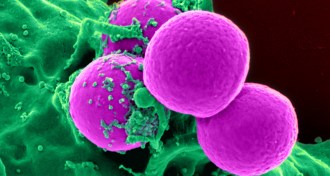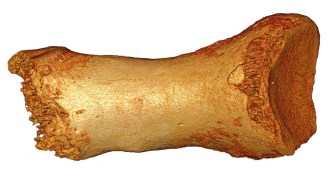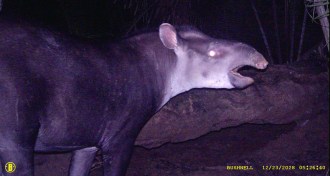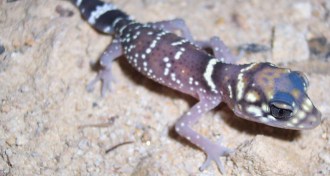Life
Sign up for our newsletter
We summarize the week's scientific breakthroughs every Thursday.
-
 Life
LifeSolving the mystery of Alzheimer’s start
Molecular evildoers team up to launch neural destruction.
-
 Animals
AnimalsPenguin huddles move like traffic jams
When one emperor penguin takes a step, he sets off a wave of movement.
-
 Neuroscience
NeuroscienceParkinson’s patients drive better with brain stimulation
Patients make fewer errors with a little help from implanted electrodes, at least on a computer.
-
 Neuroscience
NeuroscienceNarcolepsy may be an autoimmune disease
Narcolepsy occurs when wayward immune forces launch an attack on brain cells responsible for wakefulness, a new study suggests.
By Nathan Seppa -

-
 Microbes
MicrobesMRSA strain swiped skin bacteria genes to survive
A common strain of the dangerous microbe may be a wolf in sheep's clothing.
-
 Life
LifeNeandertal genes point to interbreeding, inbreeding
DNA from 50,000 years ago underscores modest levels of mating across hominid populations.
By Bruce Bower -
 Animals
AnimalsNew species of tapir found in the Amazon
A sixth species of the large, snouted mammal was hiding in plain sight, well known by indigenous people.
-
 Animals
AnimalsSnake and lizard ancestor may have birthed live young
Over millions of years, reptiles may have switched back and forth between laying eggs and giving birth to live babies.
-
 Microbes
MicrobesA newfound respect for the microbial world
Despite what many people think about humans’ place in the scheme of things, scientists are finding more evidence that we live in a world of microbes.
By Eva Emerson -

-
